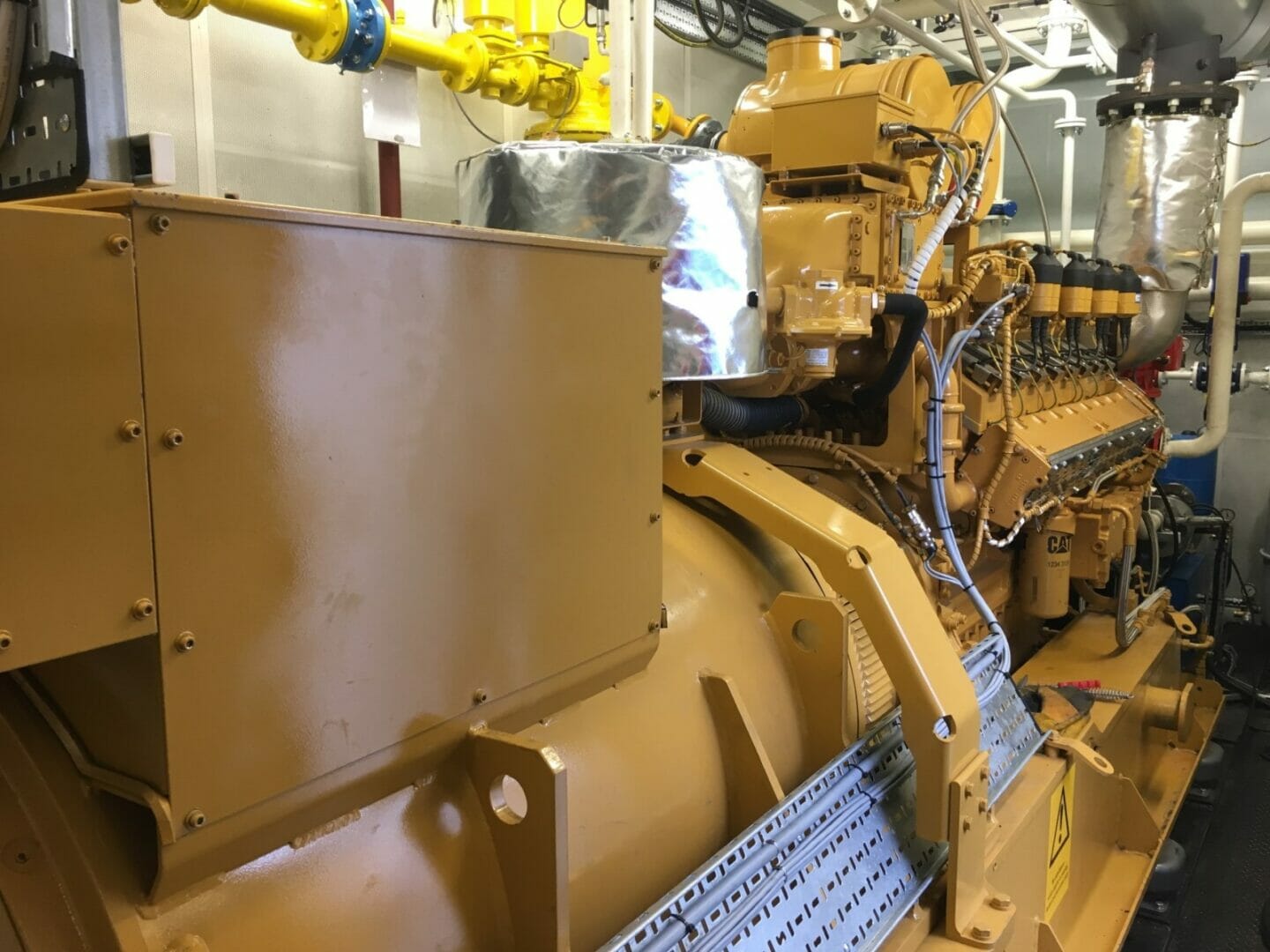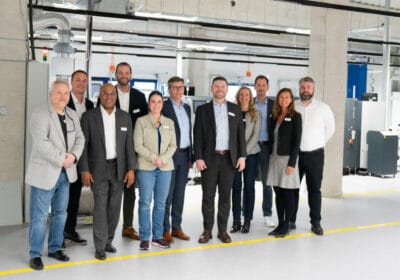The UK and Ireland have committed to reaching net zero carbon emissions by 2050, with the UK pledging to slash emissions by 78 per cent by 2035 ― but do we have the technology in place to make this ambition a reality? With Ofgem-backed trials already underway across Scotland, the rollout of green hydrogen on the UK’s gas networks is on the horizon. However, more development is needed before it is widely adopted so we must turn to technology currently available to us, such as combined heat and power (CHP), to meet these targets. Here Kelly Cole, General Manager for Electrical Power at energy and transportation expert Finning UK & Ireland, explains why CHP could be the technology to help us on the way to net zero.
According to the UK Government, generating electricity on-site using CHP systems can reach total efficiency above 80 per cent. They can deliver savings of approximately 20 to 40 per cent on energy bills, while reducing primary energy use by up to 30 per cent, compared to modern separate heat and power production technologies. The CHP process involves taking one input, usually natural gas, and turning it into two outputs, electricity and heat. An engine drives an alternator that generates the electricity while producing heat that can then be harvested from the engine jacket water and exhaust gases and reused.
As well as facilitating cheaper power generation, CHP systems can also reduce a site’s sulphur dioxide, carbon dioxide and nitrogen dioxide emissions by at least 20 per cent. Furthermore, when sized based on a facility’s heat base load rather than the electricity base load, adopting CHP systems can also reduce a site’s carbon footprint and costs compared to traditional energy solutions, while improving system resilience and flexibility.
Introducing hydrogen
As the energy landscape transitions towards net zero, the role of green hydrogen in the UK’s gas networks is expected to increase — something that will undoubtedly impact gas-powered CHP systems. In fact, the UK’s first live pilot to introduce zero carbon hydrogen into gas networks to heat homes and buildings is fully operational at Keele University in Staffordshire. Up to 20 per cent hydrogen was added to the University’s existing gas network, supplying power to over 100 homes and 30 faculty buildings.
As promising as this might sound from an environmental perspective, introducing change is always a concern for businesses who worry about having to upgrade their systems in line with the evolving energy landscape. Luckily, it is now possible to install CHP systems that run on natural gas but are also capable of operating with up to 25 per cent hydrogen with minor modification. Furthermore, some dedicates products can be configured to operate on up to 100 per cent hydrogen for sites with a dedicated hydrogen infrastructure.
Maintaining your CHP
Once a CHP system is in place, operators can maintain performance and efficiency with regular servicing. For example, if there is inefficient lube then this can cause increased resistance on the generator’s cylinder head, gaskets and seals. Ultimately, this increased resistance leads to increased fuel consumption for a similar heat take-off as a fully efficient system. Simple issues like this reduce efficiency, increase fuel usage and increase the environmental impact.
Regular maintenance ensures CHP systems stay efficient and productive, so it is important to check the reciprocating genset and CHP ancillaries for any irregularities, part wear or resistance. Businesses can partner with an experienced CHP supplier and servicing provider to monitor fluid samples for contaminants, check for any irregularities and monitor the system’s overall condition — all of which help to keep the CHP system operating at peak efficiency for its whole lifespan.
As the energy landscape continues to evolve to meet the UK’s net zero ambitions and increases the adoption of renewable energy sources like green hydrogen, it’s important that businesses respond in time. By installing modern CHP systems, businesses can cut energy costs and increase their energy independence now, while helping the UK to meet its ambitious emissions targets.
For more information on combined heat and power, visit the Finning website.








